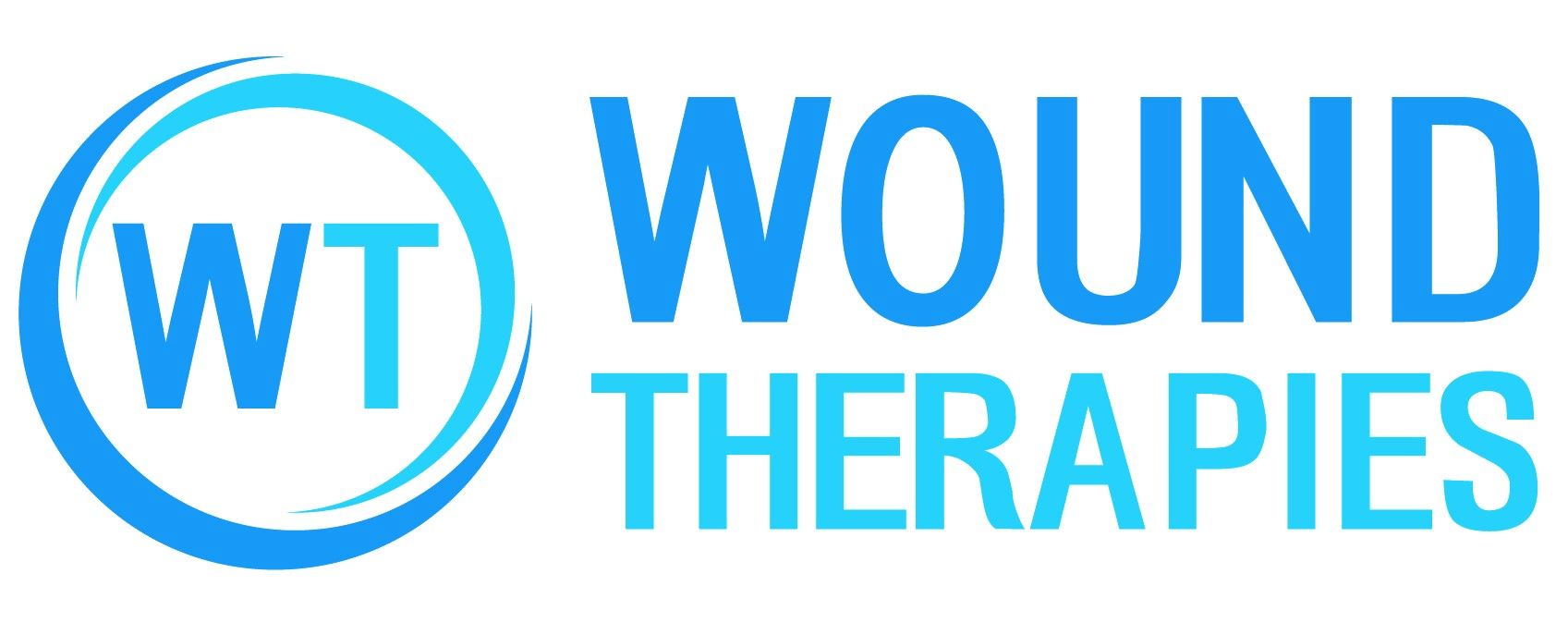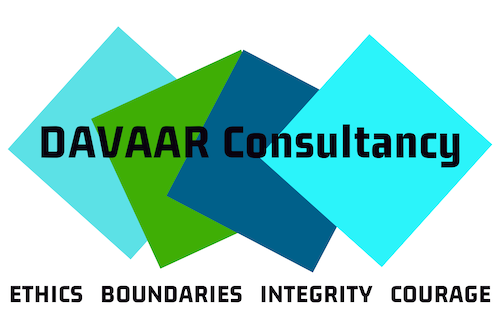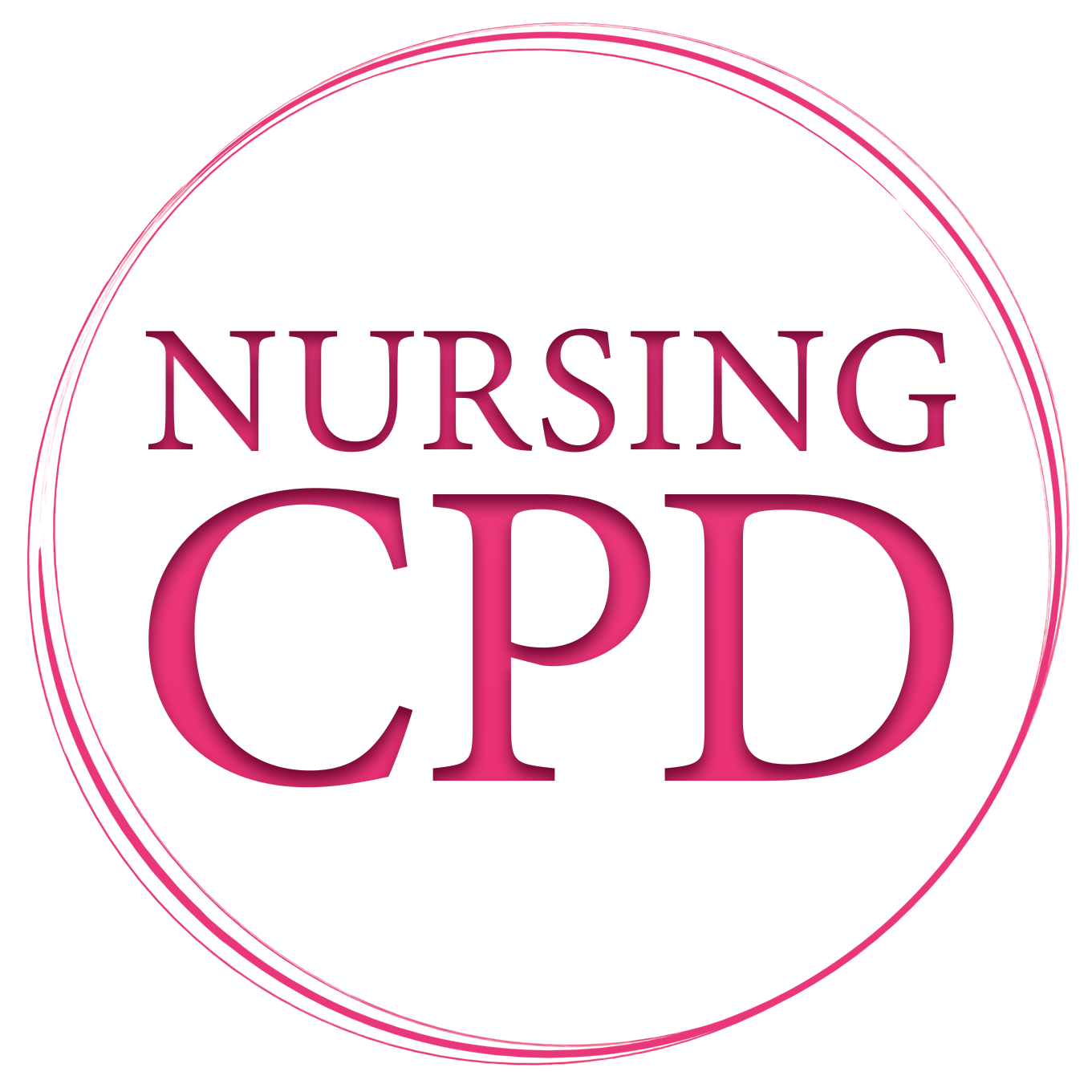Format: Online and available anytime
CPD: 5 Hours
Access: 12 months from the course start date. You can return to any part of the course as many times as needed.
Course Overview
Anne Evans-Murray, in collaboration with Nursing CPD, have developed this unique cardiac assessment course for Midwives. Throughout this online course, the experienced presenter will guide you through practical demonstrations to help you gain a deeper understanding of cardiac knowledge. Come away from this course feeling more confident in recognition of cardiac deterioration and with increased ability to refer to a cardiac specialist and communicate your assessments.
Module One
Knowledge and Skills in Cardiac Assessment for Complications in Pregnancy - Long QT Interval (LQTI)
The content will include the vital need for midwives to upskill to avoid professional or legal pitfalls due to a lack of knowledge in cardiac assessment. Midwives will be aware of their professional responsibilities and legal requirements in managing cardiac issues during pregnancy.
Distinguish between normal symptoms of pregnancy and signs and symptoms that might indicate cardiac complications relating to developing life-threatening arrhythmias.
You will learn how to:
- Gain advanced knowledge and assessment skills that will assist you in communicating and escalating care with other healthcare professionals.
- Gain advanced knowledge and assessment skill that lessens potential legal and professional risks.
- Recognise normal sinus rhythm and apply the knowledge to understand the Long QT interval and its associated risk factors in pregnancy.
- Understand how advanced maternal age, antidepressants, and others can lead to a higher incidence of developing life-threatening arrhythmias or cardiac disorders.
- Determine when to escalate care and collaborate with other healthcare professionals to ensure comprehensive care for patients with cardiovascular concerns.
Module Two
Knowledge and Skills in Cardiac Assessment for Complications in Pregnancy - Atrial Fibrillation and Preeclampsia
Additionally, it will explore the increasing risk factors, such as hypertension and obesity, and outline the effects on pregnancy. The midwife will be able to watch demonstrations and work with the presenter on how to upskill in recognising cardiac rhythms, including sinus rhythm and the characteristics of AF, using a cardiac monitor.
Anne will highlight the health risks associated with obesity during pregnancy, which can lead to gestational diabetes. Obesity in pregnancy can place the woman at a higher risk of developing preeclampsia, as well as increasing the likelihood of requiring a caesarean section. Obesity can lead to the birth of a larger-than-average baby, increasing the likelihood of birth injuries, prolonged labour, and the need for a C-section.
Preeclampsia can be a common complication of pregnancy, and for the majority of women, it may be mild, but it has the potential to be a serious, life-threatening complication.
You will learn how:
- Gain knowledge on the presentation of preeclampsia and the link to serious complications.
- To recognise signs and symptoms of new-onset Atrial Fibrillation.
- To recognise AF patterns on an ECG.
- Explore the challenges with the treatment of a pregnant woman with AF.
- Outline the potential complications of AF and link AF to preeclampsia and obesity.
- To escalate care and collaborate with other healthcare professionals, ensuring comprehensive care for patients with cardiovascular concerns relating to AF.
Module Three
Knowledge and Skills in Cardiac Assessment for Complications in Pregnancy: Acute Myocardial Infarction and Heart Failure
The causes of an acute myocardial infarction in
pregnancy are classified into two broad categories of atherosclerotic
(blockage) and non‐atherosclerotic (dissection). Acute MI in pregnancy was once considered rare; however, recent statistics indicate there is an increased incidence, with a high maternal death rate.
Women with pre-existing CAD (coronary artery dissection) have an increased
risk throughout pregnancy and immediately postpartum of developing a myocardial
infarction. In some healthy women with no risk factors, they may develop a
myocardial infarction known as SCAD (spontaneous coronary artery dissection). Often,
the clinical presentation will be atypical of ischaemia, and they may not
present with classic chest pain. The midwife must have knowledge of SCAD and its presentation.
A pregnant woman with preexisting heart conditions
will have a higher risk of cardiovascular complications. Rising rates of peripartum
cardiomyopathy (PPCM) have been noted. Peripartum cardiomyopathy is a type of heart
failure that develops late in pregnancy or soon after giving birth. It develops
in women who may not have had a previous heart disease diagnosis. Several factors may be contributing to this
rise in heart failure, such as the rising maternal age, other pre-existing
health conditions, such as hypertension, diabetes, or heart disease, which can
predispose them to developing heart failure during pregnancy.
You will learn how:
- To recognise the atypical signs and symptoms of a myocardial infarction in a young healthy woman during pregnancy or postpartum.
- To discuss the pathophysiology of spontaneous coronary artery dissection (SCAD) and how it relates to an increased incidence in pregnancy.
- Detect early cardiac deterioration by recognising ST elevation on the 12 lead ECG as early recognition leads to reduction in incidence of arrhythmias and heart failure.
- Discuss the pathophysiology and development of heart failure in pregnancy.
Your Certificate
Do you need an evidence portfolio to keep your records in order?
Stay AHPRA-Compliant with Ease – Your CPD, Simplified!
-
Hassle-free compliance – No more scrambling at audit time.
-
Easy uploads & tracking – Keep all your CPD evidence organised.
-
Designed for Nurses – Meets AHPRA standards with zero guesswork.
Use coupon code NCPDREF for an exclusive 20% discount.
Course Learning Outcomes
- Review the cardiac complex: waves, segments and timing intervals and demonstrate the understanding of the foundation of interpretation of sinus rhythm and abnormal arrhythmias.
- Demonstrate interpretation of life-threatening arrhythmias and outline the treatment according to the Australian and New Zealand Committee of Resuscitation guidelines (ANZCOR)
- Demonstrate an understanding of 12 lead ECG interpretation in relation to identifying changes related to acute coronary syndrome – become proficient at interpreting a myocardial infarction.
- Describe the pathophysiological development and nursing assessment of a variety of common cardiac disorders
Frequently Asked Questions
I am a paid subscriber of Nursing CPD, how does this differ to my annual subscription?
How is the course content delivered?
How long can I access the course for?
What are the system requirements for watching the videos?
Can I copy and or share course learning materials and resources?
Help
Cardiac Assessment for Midwives:
When Cardiac Symptoms Aren’t “Just Pregnancy”
Why This Course Matters
WATCH 7 VIDEO PRESENTATIONS
In these six sessions, Anne will teach you the key skills required to distinguish between normal pregnancy symptoms and red flags that may indicate serious cardiac issues such as LQTI, AF, SCAD, and heart failure.
SELF-PACED: LEARN ON DEMAND - 24/7
This self-paced course is available to you 24/7, allowing you to complete it anytime, anywhere at your convenience!
EARN A CERTIFICATE OF COMPLETION
Upon completing this online course, you will receive a Certificate of Completion, available for download as a digital certificate or for printing as a hard copy.
What this Course is about
Cardiac disease is one of the leading causes of maternal illness and death in Australia and worldwide.
For midwives, early recognition and timely escalation of care are critical to improving maternal outcomes.
Midwives are often the first clinicians to identify subtle changes that may indicate cardiac deterioration. By recognising and responding to cardiac-related complications early, midwives can help prevent serious harm — and in some cases, save lives.
There is growing evidence internationally that midwives need strong cardiovascular assessment skills to identify early warning signs during pregnancy, labour, and the postnatal period. Cardiac conditions may first present — or worsen — during these times.
This course supports midwives to confidently distinguish between normal physiological changes and symptoms that require further assessment, escalation, or multidisciplinary review.
Pregnancy places significant strain on the cardiovascular system, increasing risk for women with known or undiagnosed heart conditions. As the complexity of cardiac disease in pregnancy continues to rise, care increasingly involves a multidisciplinary pregnancy–heart team (cardio-obstetrics).
Midwives play a vital role within this team. You are often the clinician who:
- Notices early or subtle deterioration
- Identifies concerning patterns over time
- Responds to women’s symptoms and concerns
- Initiates escalation and further assessment
This specialised cardiac assessment course has been designed to support midwives at all stages of practice, from those building foundational confidence to experienced clinicians seeking deeper clinical insight.
Research consistently highlights the need for ongoing education as cardiac complications in pregnancy become more prevalent. This course provides practical, clinically relevant learning to support safe, confident midwifery practice in an increasingly complex care environment.

Why Cardiac Assessment Skills Matter in Midwifery Practice
Some women enter pregnancy with pre-existing heart conditions, while others develop cardiac complications during pregnancy or the postnatal period. In both cases, early identification is critical to reducing risk and improving outcomes for both mother and baby.
By developing cardiac assessment skills, midwives are better equipped to:
- Recognise early cardiac red flags that may otherwise be missed
- Initiate timely escalation and intervention
- Support safer outcomes for women and their babies
Midwives trained in cardiac assessment are able to provide more comprehensive and confident care. This includes identifying potential indicators of cardiac disease such as:
- Abnormal heart sounds
- Unusual or concerning blood pressure readings
- Irregular heart rhythms
With a stronger understanding of cardiac function, midwives can make informed clinical decisions and collaborate more effectively with obstetricians, cardiologists, and other healthcare professionals.
Clear communication of concerns is essential within multidisciplinary care. Midwives play a key role in sharing observations, recognising patterns, and supporting coordinated decision-making within the pregnancy–heart team.
Developing confidence in cardiac assessment also reduces the risk of missed or delayed recognition of deterioration. This protects maternal and fetal wellbeing and supports safer professional practice.
Strong cardiac assessment skills are particularly important when caring for women with known risk factors, including:
- Hypertension
- Diabetes
- A family history of heart disease
Building these skills demonstrates a proactive, safety-focused approach to midwifery care in an area of increasing clinical complexity.
At the completion of this course, you will have:
-
Explore the need for an increase in cardiac assessment skills and knowledge for midwives
-
Identified the most common cause of maternal mortality and morbidity and explored the link to life-threatening arrhythmias and antidepressants
-
Gained knowledge in the recognition of cardiac deterioration in three clinical scenarios that can occur in pregnancy and postpartum
-
Demonstrated understanding of risk factors, warning signs, and symptoms of potential cardiac deterioration
You will also learn how to:
-
To recognise signs and symptoms of cardiovascular complications, such as shortness of breath, chest pain, fatigue, or irregular heart rhythms, that require immediate medical attention
-
Recognise abnormal cardiovascular findings and refer women to specialised care promptly, ensuring timely management and improved outcomes
-
Have the skills to refer a patient to a specialist (e.g., cardiologist, obstetrician) based on cardiac findings and the patient's overall health
-
Understand the professional and legal aspects of cardiac care during pregnancy, including communication or referral to manage potential risks to maternal and foetal health
-
Identify risk factors for cardiovascular disease and complications during pregnancy, such as preeclampsia, gestational hypertension, and pre-existing heart conditions
-
Examine three clinical scenarios relating to Long QT Interval syndrome (LQTI), Atrial Fibrillation (AF), Spontaneous coronary artery dissection (SCAD) in pregnancy and recognition of red flags
“After more than a decade as a midwife, this course completely changed how I approach cardiac assessment. It clarified what had always felt like a grey area, especially around what’s normal in pregnancy versus a warning sign, such as AF or long QT. Anne’s clear explanations, rhythm strip walk-throughs, and practical scenarios gave me real confidence. I now feel better equipped to spot red flags and escalate early. ” — Sarah
Course Overview
Cardiac Assessment for Complications in Pregnancy: Atrial Fibrillation and Preeclampsia
- Normal sinus rhythm
- Key characteristics of atrial fibrillation
- Using cardiac monitoring and ECG interpretation.
- Gestational diabetes
- Preeclampsia
- Caesarean section
- Prolonged labour and birth complications
- Delivering a larger-than-average baby
Cardiac Assessment for Complications in Pregnancy: LQTI (Long QT Interval)
- Obesity
- Vomiting and dehydration
- Antidepressant use
- Advanced maternal age
Cardiac Assessment for Complications in Pregnancy: Acute Myocardial Infarction and Heart Failure
This module focuses on acute myocardial infarction (MI) and heart failure in pregnancy, including peripartum cardiomyopathy (PPCM), conditions associated with significant maternal morbidity and mortality.
The causes of acute myocardial infarction in pregnancy are broadly classified into two categories:
- Atherosclerotic disease (coronary artery blockage)
- Non-atherosclerotic causes, most commonly spontaneous coronary artery dissection (SCAD)
While myocardial infarction in pregnancy was once considered rare, recent data show an increasing incidence, with a high risk of maternal death. Midwives, therefore, play a critical role in early recognition and escalation of care.
Women with pre-existing coronary artery disease are at increased risk of myocardial infarction throughout pregnancy and the immediate postpartum period. Importantly, myocardial infarction can also occur in young, otherwise healthy women with no traditional risk factors due to SCAD.
SCAD is increasingly recognised in pregnancy and the postpartum period. Clinical presentation is often atypical, and women may not report classic ischaemic chest pain. For this reason, midwives must understand the presentation of SCAD and maintain a high index of suspicion when symptoms are subtle or non-specific.
This module also explores the rising incidence of peripartum cardiomyopathy (PPCM) — a form of heart failure that develops late in pregnancy or shortly after birth, often in women with no prior diagnosis of heart disease.
Contributing factors to the increasing incidence of heart failure in pregnancy include:
- Advancing maternal age
- Hypertension
- Diabetes
- Pre-existing cardiovascular disease
Midwives will develop the knowledge needed to recognise early cardiac deterioration, understand disease processes, and support timely escalation to reduce the risk of serious complications.
Our Presenter
Anne Evans-Murray
Anne is a frequent presenter at workshops, conferences & seminars throughout Australia & New Zealand on subjects such as ECG interpretation, clinical assessment of the deteriorating patient, assertiveness and leadership.
How you will Learn
The 5-hour Cardiac Assessment for Midwives Course is fully online and self-paced, allowing you to start anytime and progress at your own speed. With 24/7 on-demand access, you can fit the training into your schedule at your convenience.
5 hours of interesting and engaging online presentations
24/7 access to all the course modules and learning materials
Full ongoing course support via email
Your Certificate
Do you need an evidence portfolio to keep your records in order?
Stay AHPRA-Compliant with Ease – Your CPD, Simplified!
-
Hassle-free compliance – No more scrambling at audit time.
-
Easy uploads & tracking – Keep all your CPD evidence organised.
-
Designed for Nurses – Meets AHPRA standards with zero guesswork.
Use coupon code NCPDREF for an exclusive 20% discount.
What others say about Anne's Cardiac Education
-
Margaret, Cardiac Assessment and Telemetry
With practice applying the famous five steps and using Anne’s other interpretation tools, I will grow my confidence to not only competently interpret ECGs but also advocate for timely patient care, when necessary, as time is muscle.
-
Jodie, Cardiac and ECG Interpretation
-
Liz, Telemetry & ECG Interpretation
Frequently Asked Questions
Do I need to be a paid subscriber of Nursing CPD?
Login to get your coupon code.
I am a paid subscriber of Nursing CPD, how does this differ to my annual subscription?
How is the course content delivered?
How long can I access the course for?
What are the system requirements for watching the videos?
Can I copy and or share course learning materials and resources?


PHONE: 07 4151 3884 (select option 1)
EMAIL: enquiries@nursingcpd.com.au
Terms & Conditions
Anne Evans-Murray
R.N., BHlthSc, MACCCN, Grad.Dip Ed, MEd, Dip Counselling, GradCertCritCare, CertIV Training and Assessment, CertIV in Mediation
Dr Amanda Bowden


Diabetes Queensland
Our vision is to see a world free of diabetes and its complications. It drives everything we do - every program we deliver, every message we share, and every resource we develop. Through our programs and partnerships with industry, government and community groups, we work to ensure diabetes care is always improving and evolving.
Diabetes Queensland helps people at risk of diabetes and those affected by the condition by providing trusted information and guidance on how to minimize their risk of complications. The organisation is responsible for the delivery of the National Diabetes Service Scheme in Queensland. The scheme provides products and information to approximately 190,000 registered Queenslanders.

Dr Julie Martyn
PhD
Jules Aitken
MSc (Nurse Practitioner), RN, CDE
She is also a registered Credentialed Diabetes Educator (CDE) registered with the Australian Diabetes Educators Association (ADEA) gaining her Certificate of Diabetes Management at the University of Technology Sydney. She has worked within the Diabetes, Weight Management and Metabolic and Chronic Disease arena for over 20 years.
She has participated in research projects involving weight management, diabetes, metabolic and chronic diseases and has presented at nursing, allied health, medical and community events at local, State and National level.
She is a mentor for diabetes educators with the Australian Diabetes Educators Association and also provides education and mentorship for student nurses, RNs, EENs and other health professionals within private organisations.
She is also an member of External Advisory Committee for Queensland's University of Technology Master of Nursing programme.
Louise Webber
Masters Nursing Science (Nurse Practitioner), BA (Hons), RN
She has worked in several public hospitals and Community settings in Australia and overseas. She currently works collaboratively with several Aged Care Providers and private hospitals and runs her specialist community wound clinic.

Maria Clemente
BScN, RN, JD, GradDip, Solicitor
Mary Andrew
Mary has a long history working in aged care, with 25 years experience with the Department of Veterans Affairs in various roles addressing
the complex health and support needs of the Veteran community.
Mary joined the Ethnic Communities Council of Queensland
almost 10 years ago – initially as Co-ordinator of the Community Visitor Scheme
(CVS), now the Aged Care Volunteer Visitor Scheme (ACVVS) – training and
matching CALD volunteers with consumers from similar backgrounds / language /
and cultural experiences. This was to provide friendship, support and
connection for residents to combat social isolation.
As a PICAC Project officer Mary is actively engaged in
delivering training and professional development to aged care staff and
management, highlighting the diverse needs of CALD aged consumers and the
priority of inclusive care provision. She provides one on one support to
providers and links them to resources promoting best practice models of care.
She actively participates in local aged care networks –
liaising and advocating with providers, professional bodies, and industry
stakeholders regarding the care needs of CALD communities.
Mary has a background in Pharmacy, gaining a qualification in Ireland before migrating to Australia in the early 80s.


Dr Michael Sinnott
MBBS, FACEM, FRACP
Dr Sinnott has contributed to over 40 publications and is a world-leader in research regarding staff safety in healthcare. His expertise lead Dr Sinnott to become involved in the development of safety guidelines and legislation in the USA, and safety standards in Australia.
In the commercial space, Dr Sinnott is the Co-Founder of Qlicksmart Pty Ltd and Smartstream Pty Ltd, who innovate and commercialise safety medical devices.

National Asthma Council
We actively work to assess and address the impacts of asthma through advocacy and collaboration with policy makers, stakeholders and Australian and international asthma and lung health organisations.
Through our Sensitive Choice program, we provide the public with essential information about asthma and allergy management and empower consumers to identify asthma and allergy-aware products and services.

Robyn Wortel
Clinical Education Specialist
Silvia Borges
She has since been researching, developing and delivering training modules focused in culturally appropriate care for older Australians.
Sue Walker
RN, BN, BN (ADMIN), MPHC, MACN
To continue to meet professional and community expectations Nurses and Midwives need to acknowledge their unique contribution to health care delivery and assert their collective strength to safeguard the community and ensure their ongoing professional needs are recognised and met.
Helen Kansky
Helen enjoys exploring various cuisines and the challenge of recreating them at home for her family.
Dr Wendy McIntosh
RGN, RMHN, Grad. Dip MH, MN, Cert IV Workplace Assessment & Training, Group Leadership Cert, MRCNA, MANZCMHN, AANZPA
Areas of specific interest and passion for Wendy include: professional supervision, professional boundaries, professional identity, links between childhood trauma and mental illness and workplace bullying.
Wendy has over 20 years as a psychodrama trainee – a life long learning. She is committed to using experiential learning in the work she does with individuals and groups.
Regularly presenting workshops at national & International conferences, Wendy consistently receives feedback on her passion, knowledge and creativity as a presenter & facilitator. Wendy is continually integrating learning and insights she gains from the work she does in professional boundaries.
Wendy has developed internet training tools and education packages for individuals / organisations and delivers webinars for a variety of organisations nationally and internationally. With the assistance of six podcast episodes titled ‘Professional Boundaries’, Wendy is exploring and guiding listeners on their own personal and reflective journey through boundaries.
This series of professional boundaries podcasts has been picked up by the School of Health and Social Care, Edinburgh Napier University to be used in their curriculum. Further podcasts are currently in production.
Wendy was Charter President of the Global Nurses & Midwives Rotary Club. An innovative, diverse and inclusive Rotary Club whose members come from around the world.

wendy@davaar.com.au
0411 385 573
Subscribe to our newsletter now!
Please Note
Don't worry, your records are safe and if you need a copy of your portfolio urgently, please contact us on 07 4151 3884 (select option 1).
David Ruzicka
Masters Nursing Science (Nurse Practitioner), Master of Palliative Care
David is a nurse practitioner with over 14 years of clinical experience in palliative care. David has worked in both the acute and community sector within various Queensland health facilities throughout the state. He has proven ability as a palliative care clinician and researcher, as well as with mentoring and motivating staff. David has completed a Master of Nursing Science (Nurse Practitioner) with distinction and a Master of Palliative care and is currently employed as a Nurse Practitioner within the Palliative care service in the Sunshine Coast Hospital and Health service.
Colleen Reid
During those years she became increasingly drawn back to psychiatry, working with people who were experiencing life very differently and who were at risk of ever- increasing marginalisation.
Dr Chamindika Konara
B.ENG [BIOMED], PHD [BIOTECH
As an ISO 13485 and ISO 9001 accredited auditor, Dr Konara has strong experience in implementing systems for quality improvement and change control.
Dr Konara works within the biomedical sector to translate research and product concepts into practical solutions for healthcare facilities.
She has contributed to the education of perioperative staff through her roles at Qlicksmart Pty Ltd and StaffandPatientSafety org, and provides ongoing education to medical students as well as medical industry professionals.
In 2022 Dr Konara presented at the AORN ( and ACORN ( virtual conferences and she will be presenting at the AORN Global Surgical Conference Expo 2023

Swaatha Haji
Sara Yousif
She worked as a Case Manager Assistant and Arrival Coordinator at Multicultural Australia for 6 years where she met many new arrivals through the Humanitarian Support Program (often at 1am and 4am at Brisbane Airport!) She now works as a Mental Health and NDIS Support coordinator with the Richmond Fellowship Queensland.
She has co-ordinated, co-presented and engaged with community members to participate in health workshops in partnership with Mater Refugee Health, Qld Program of Assistance to Survivors of Torture and Trauma (QPASTT), TRUE Relationships and Reproductive Health and TAFE Qld.
Mi Nguyen
She has worked in various capacities, including program management and coordination, communications, research and capacity building. Mi holds a Master in Development Studies with a gender specialisation.
Dr Paula Foran
Paula is the sub-editor for the Journal of Perioperative Nursing and manages the column, ‘Emerging Scholars’ where Paula assists postgraduate students to see their publications come to fruition.
Paula has been a guest speaker and presented keynote presentations at national & international conferences. She has been awarded the ‘Most Popular Presenter’ for her keynote address at the International Collaboration of Perianaesthesia Nurses, and Best Oral Paper award at the European Operating Room Nurses conference in The Hague.
Dr Shreya Singh
Phd, MA, BA
She has extensive experience in teaching and interdisciplinary research, working with diverse stakeholders to achieve positive organisational change.
Dr Singh is passionate about community education and safety, with a focus on empowering frontline staff.
Amy Gibson
Amy also acts as a mentor and educator for pharmacists who have recently graduated as well as to pharmacists who may be established, but are moving into more clinical areas of practice.
Subscribe to our newsletter now!
Muireann Wynne
RN, BSN, MSN (Clinical - Emergency), PGDip ClinRedesign
Muireann is recognised for her expertise in workforce strategy, nursing excellence, and healthcare innovation. She is dedicated to fostering professional growth and creating environments where nurses can thrive.
Muireann remains deeply committed to mentoring the next generation of nursing leaders. Balancing her professional achievements with family life, she understands the complexities of career progression and personal commitments, making her a strong advocate for sustainable and fulfilling nursing careers.

Lisa Lucas
RN, BSN, MSN (Emergency Nursing - Trauma)

